Thailand News Today | Delivery driver finds huge stash of Thai, Laos and Japanese banknotes under a tree
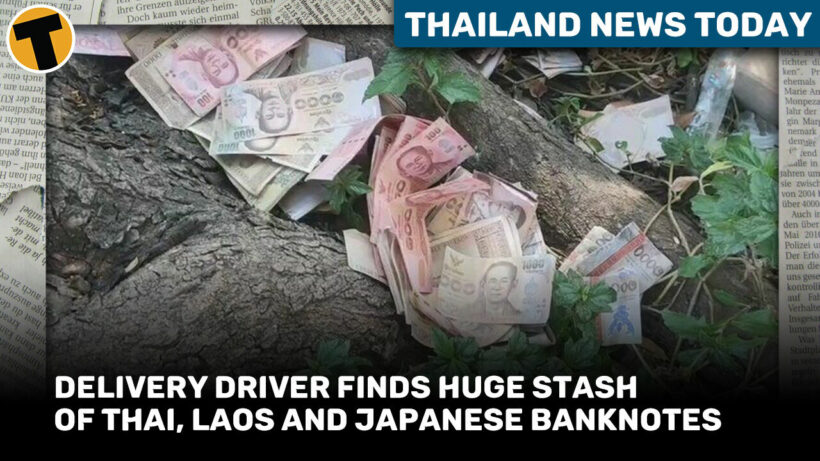
Delivery driver finds a massive stash of Thai, Laos, and Japanese banknotes under a tree Thailand News.
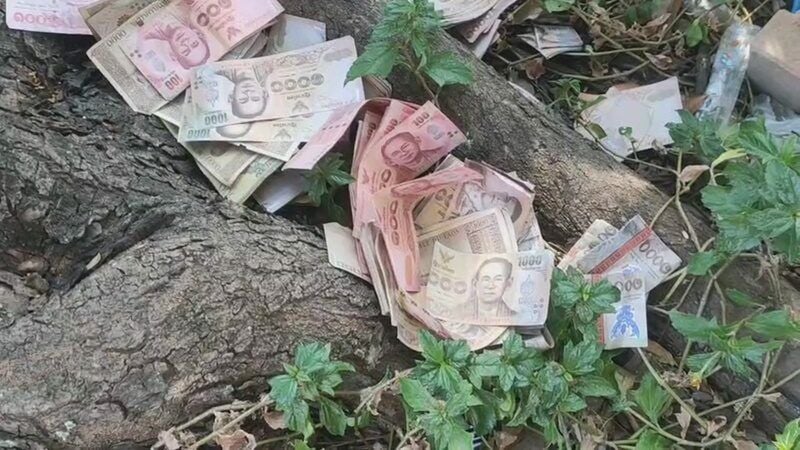
Delivery driver finds massive stash of Thai, Laos, and Japanese banknotes under a tree
This morning, a delivery driver stumbled across a store of Thai, Japanese, and Laos banknotes
scattered beneath a tree in Udon Thani city center, northeast Thailand. The cash – amounting to over 500,000 baht – is suspected to be fake.
The 43-year-old Somsak Sirikhan driver was sitting waiting for a job with five or
six other rides. He said he backed out on his motorbike to go and buy a coffee
when he spotted the cash scattered underneath a mahogany tree near Ban Mak.
Kaeng School on Sri Suk Road.
Somsak said he was shocked, so he called his friends to look. He immediately
called the police.
The delivery driver said he couldn’t tell if the money was real. It looked real, but it
was mostly 100 baht banknotes mixed with Laos kip and Japanese yen, so the
the driver was unsure.
Officers from Mueang Udon Thani Police Station inspected the cash, which would
amount to over 500,000 baht if it was real.
Police confirmed that all the 100 baht and 1,000 baht banknotes were fake. The
police suspect that the Laos kip and Japanese yen are also affected.
Police said they are checking CCTV footage to expedite their search for whoever
dumped the fake cash under the tree. Forensic scientists will examine the
confiscated money for fingerprints.
Last month, police warned the public against counterfeit 1,000 baht banknotes in
circulation, also in Udon Thani province.
In May, Thailand’s Prime Minister Prayut Chan-o-cha asked the public to look for counterfeit 1,000 baht notes. First, notice that the letters have a
different texture from regular messages. Second, inspect the hidden watermark. A simple
message will reveal a portrait of HM the King when held up to the light.
Chinese nationals are top applicants for Thailand’s 10-year LTR visa Thailand News.
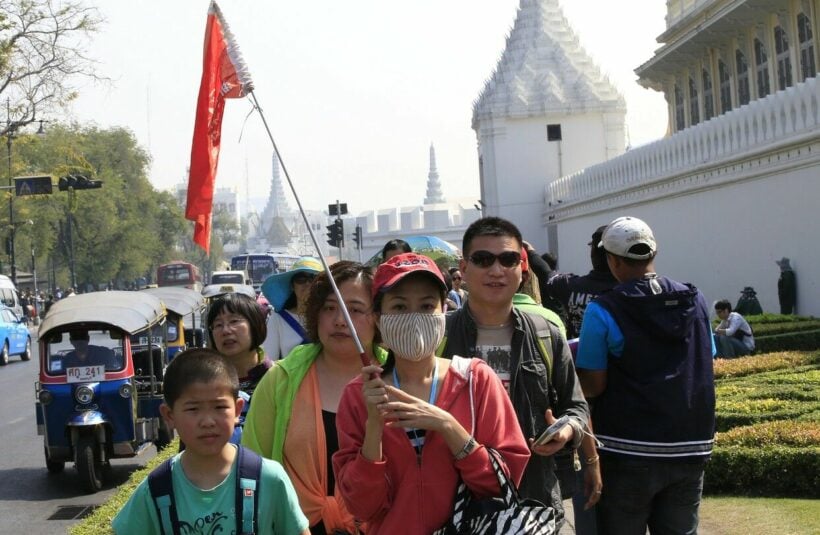
In September, Thailand launched the 10-year Long Term Resident (LTR) visa to
attract foreigners with ‘high potential’ into the kingdom. Chinese nationals
represent 60% of LTR visa applications made to date, according to Chinese media.
Before the pandemic, Chinese nationals topped the list of foreign arrivals in
Thailand every year, mostly arriving in big groups on guided tours. However, bus-
loads of Chinese tourists have been missing from Thailand’s major tourist
destinations this year thanks to China’s Covid-zero policy. Right now, Chinese
charter-group tours to Thailand remain banned.
Determined to get to Thailand, Chinese nationals have made applicants for 10-year
LTR visas and Elite cards in Thailand instead. Thai authorities have not released
official data regarding LTR visa applicants. However, Chinese media reports that
Chinese nationals make up 60% of the 2,500 applications made so far. The
Cambodian equivalent, the My Second Home Programme, has attracted a similar
amount of applicants.
The LTR visa offers a work permit in Thailand but has not received as many
applications as initially expected due to its lengthy, complicated and bureaucratic
application process. Different documents and conditions are required for the five target
groups: wealthy global citizens, wealthy pensioners, high-skilled professionals,
work-from-Thailand professionals and dependents.
Sales of Thailand’s ‘Elite’ cards have also surged 185% among Chinese nationals.
Of the 20,000 members of the program, 7,350 are Chinese. The most popular
The elite card among Chinese citizens is the 5-year Elite Flexible Programme, a multiple-entry extendable visa.
The 5-year Elite Flexible Programme is designed for foreign investors who want to
buy property in Thailand worth at least 10 million baht (US$320,000). Foreigners
are currently permitted to purchase a condominium unit so long as 51% of the teams in
the building are Thai-owned. The 5-year Elite program can be extended to 20
years.
The Elite card does not offer a work permit but is still considered a more attractive
option to most than the LTR visa. The Elite card has similar benefits but is
cheaper, has a more straightforward application process, does not require health insurance, and
excuses tax on foreign earnings. Thailand News
Armed and Distressed Cambodian soldier crosses Thai border Thailand News.
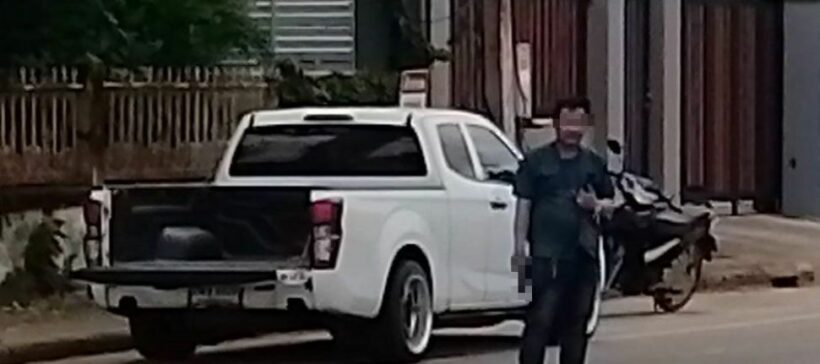
On Saturday night, an armed and distressed Cambodian soldier drove through a checkpoint and crossed the border into Thailand’s eastern province of Sa Kaeo.
The Cambodian soldier remained in his car until Sunday morning. The soldier, Colonel Sok Banpol, drove his car to an intersection and parked there.
Sok’s relatives
arrived on the scene to convince him to surrender.
Sok reportedly got out of his car and walked around holding a gun.
Luckily, the Thai SWAT police could swoop in and disarm the troubled soldier
without harming anyone. Sok was taken to a hospital, and authorities planned to drug test him. Cambodian authorities will then prosecute him.
Thai media outlet Naewna reported that Sok was distressed due to family
problems. Thailand News
Pickup driver faces 100,000 baht fine for angering elephant Thailand News.
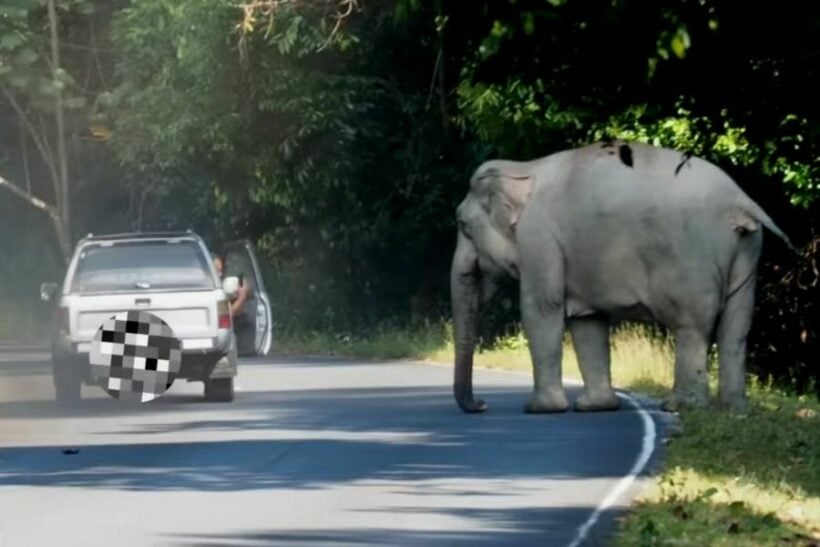
Pickup driver faces 100,000 baht fine for angering elephant
An impatient pickup driver faces a fine of up to 100,000 baht after annoying a wild
elephant while driving in the Khao Yai National Park in the northeastern province
of Nakhon Ratchasima or Korat.
Last Friday, November 5, the Facebook page and YouTube channel, “Wild
Animals at Khao Yai (สัตว์ป่าเขาใหญ่)” posted a video of a pickup car provoking a wild
elephant on the road at Khao Yai National Park.
The video shows the pickup driving toward the elephant instead of remaining
parked until the animal passes as cars are recommended to do. The pickup driver’s
actions startled the elephant, which made the animal trumpet.
The pickup then drove past the elephant, stopped, and the driver got out and
opened the car door to take a video of the animal. The vehicle’s driver
went on his way after being satisfied with his pictures and video.
Thai netizens made their feelings known that they were not happy with the driver’s
behavior.
Many people condemned the pickup driver for his provocative action. Some also
criticized the driver for breaking traffic laws. The car exhaust was too loud and
released black smoke. Some people, somewhat harshly, wished the elephant had
attacked the vehicle.
The Head of Khao Yai National Park revealed that the driver’s actions broke
Section 20 of the National Park Act: visitors in the national park must follow the
orders and recommendations of rangers. he said the penalty was a fine of up to
100,000 baht.
According to a report on Channel 7, the pickup driver had already surrendered
himself to the police and paid the fine. The amount of the fine has not been
reported.
He warned other visitors not to take this action when facing an elephant or
other wildlife in the park. He recommended drivers keep at least 30 meters
away from an animal, avoid honking or creating noise, turn the lights off, move
backward slowly, and not try to chase the animal away.
Chaiya added that people could guess the elephant’s emotion by looking at its ears
and tail. The elephant is not in a good mood if its ears are flapping and the bottom is held out stiffly. Thailand News
Loy Krathong Festival Starts in Sukhothai
The Loy Krathong and Candle Festival of Sukhothai province started over the past
weekend.
The festival attracted crowds of Thai and foreign tourists who experienced the
historical atmosphere of the province amid cool weather. They flocked to the light
and sound show of the glorious past and the present of Sukhothai, once
the capital of an ancient kingdom.
Another highlight is a beauty contest that will be concluded on Nov 8, the Loy.
Krathong day and the last day of the Loy Krathong and Candle Festival of
Sukhothai.
In Bangkok, many people were buying materials to make Krathong (lotus-shaped
receptacles) at Pak Khlong Talat market. They included fresh flowers and banana
leaves, and trunks. Krathong products made from dried bread and biscuits were also
available. However, some shops continued to sell Krathong made from Styrofoam.
A vendor said that her sales increased ahead of the Loy Krathong festival this year
because COVID-19 situations improved, and people were resuming their activities
and spending more. Thailand News
Check out other news or watch a news report on Thaiger’s youtube channel.
Latest Thailand News
Follow The Thaiger on Google News:


























